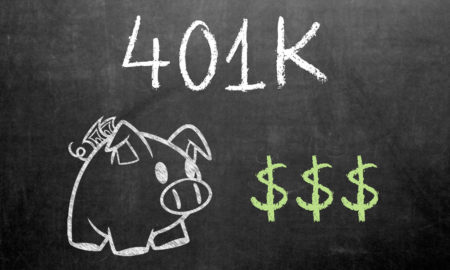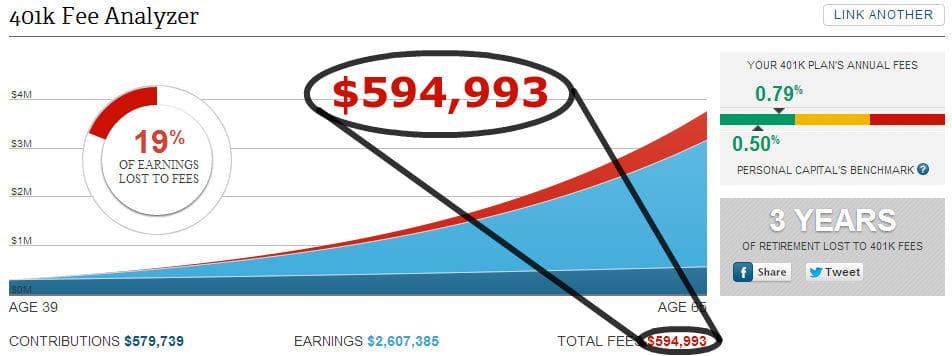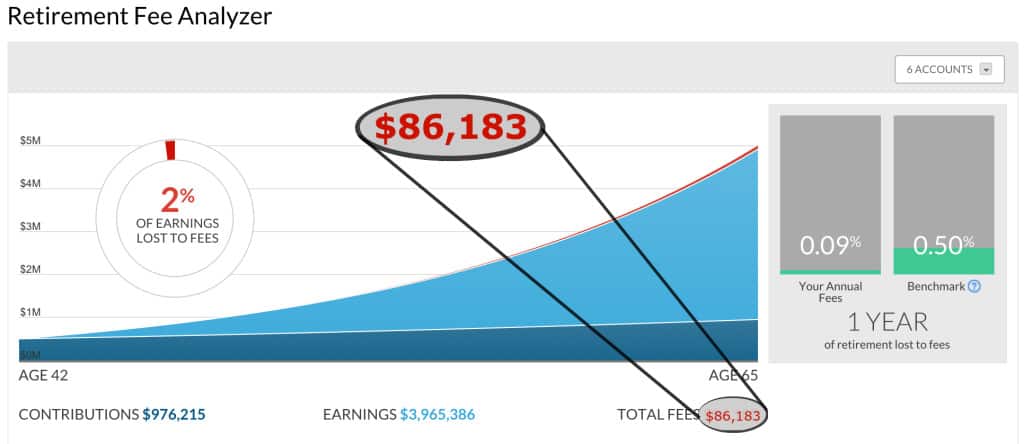

401(k) plans are one of the most important and popular retirement tools in America. Millions of Americans dutifully contribute to their 401(k) each payday, but all 401(k) plans are not created equal.
Some 401(k) plans are a great deal for employees, while others charge massive fees that can cost hundreds of thousands of dollars in lost earnings.
Read on to find out how your 401(k) plan stacks up and how you can optimize your investments for your dream retirement.
How 401(k) Fees Work
401(k) plans often charge all sorts of complicated fees.
Sometimes these fees are hidden way down on page 47 of the fine print you get when starting a new job, but you get a constant reminder each quarter when the fees are deducted from your account.
401(k) fees come in a few different forms. These are the most common you can expect to see:
Account Management Fee – The first fee charged by 401(k) accounts is charged by your account administrator. When you login to view your 401(k) balances, the site you log into is maintained by the account administrator. Popular 401(k) administrators include Fidelity, Wells Fargo, Vanguard, and many others.
Recurring Fund Fees – Each 401(k) plan offers you different options for investments. Each mutual fund charges different fees, and you have to pay your mutual fund fees on top of your account management fees. Some fund families, like Vanguard, are known for charging very low management fees under 0.5%. Other fund families charge upwards of 3% annually. Be aware of the fees when choosing your investments.
Load Fees – While not common in 401(k) accounts, it is not unheard of for funds in retirement plans to charge load fees. These fees are a fixed percentage of each contribution you make and/or a fixed percentage when you sell.
Analyzing Your 401(k) Fees Compared to the Best 401(k) Plans
The best 401(k) plans for providers may not be the same as the best 401(k) plans for individuals. Your employer likely pays a hefty administration fee to your account administrator in addition to the fees you pay. But for now, we are more concerned about what you pay than what your employer pays.
To get the best analysis of your 401(k) fees, we recommend Personal Capital’s fee analyzer tool.
Signing up for an account is 100% free and within minutes, and the built-in 401(k) fee analyzer that shows how much you are paying in fees and how you stack up compared to other 401(k) plans.
How Much Can Fees Affect Your 401(k) Plan’s Returns?
Most people under estimate the impact that fees can have on their retirement. Because of compound interest, a single .5% difference in fees can cost you hundreds of thousands of dollars over the years and delay your retirement by years.
When InvestmentZen contributor Mr. 1500 ran Personal Capital’s fee analysis tool on his 401k portfolio, he nearly fell out of his chair. The analysis showed that with his current portfolio, he was on track to paying a whopping $594,993 in fees over the next 26 years and lose him 3 years of retirement due solely to fees:
After this discovery, it only took him a few hours of reshuffling his investments to reduce his potential fees to just $86,163, saving him over $500,000 dollars and adding 2 years to his retirement.
If you want to get the most out of your 401(k) plan, signing up for a free account at Personal Capital to take advantage of their 401k analyzer is an easy way to do it.
It might just save you $500,000 dollars (or more).
The Best 401(k) Plan: Choosing the Right Investments in Your Current 401(k) Plan
Benefits are an important part of choosing a new job, but 401(k) fees alone are not a good reason to quit a job and go somewhere else if you are otherwise fairly compensated and happy.
However, you should take the time to make the right investments in your 401(k) within your current options.
In general, most investors do best with something boring. Sexy investments are exciting in movies like The Wolf of Wall Street, but famed investor Warren Buffett suggests that most people would be better off in a low fee S&P 500 index fund.
Another good option, particularly if you don’t have access to a low fee S&P 500 index fund, is a target date fund. A target date fund is a “fund of funds” designed to maximize return while adjusting to the best risk level for your own target retirement date.
If you’re not sure where to start, look back to Personal Capital. In addition to analyzing your 401(k) fees, you can use their retirement planning tools to help you manage your investment’s target allocation. Personal Capital goes as far as to offer you a suggested allocation at no charge.
You can also work with a Personal Capital advisor who will help you make the best choices within your 401(k) plan’s investment options, though this option isn’t free.
Rollover Your 401(k) Plan When You Move to a New Employer
Chances are you won’t stay at the same employer for your entire career. If you have moved around in the past, you might have a few old 401(k) accounts out there. Rollover is not just a trick to teach your dog, it is an option to save yourself thousands of dollars in 401(k) account fees.
When you leave an employer, you have an option to keep your account as is, or roll over the balance to a new 401(k) or an IRA.
In most cases, rolling over to an IRA is the best option. IRAs do not charge account maintenance fees like 401(k) accounts, and you have access to invest in any mutual funds (or stocks or bonds) that you choose without limits.
And, with your new knowledge of mutual fund fees, you can avoid costly mistakes that can drain thousands of dollars from your retirement.
Photo credit: Jason Tester “I want my future back” via photopin (license)


























